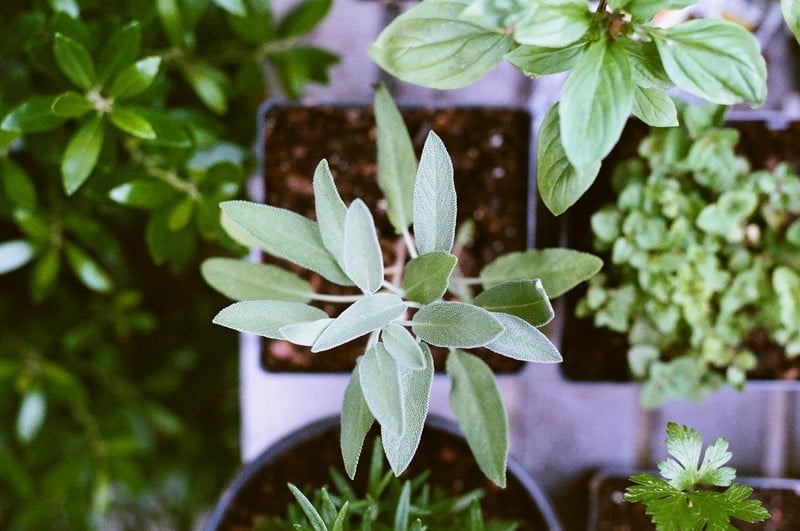25 Ways to Reduce Your Impact on the Environment
Our society revolves around convenience. So when you try to reduce your impact on the environment, sometimes you have to make a mindset shift. These tips are pretty simple, especially once you get a routine in place.
Maybe it’s more convenient to buy a bottle of water while you’re out for the day. But what are the effects of that convenient choice? Probably a $2 hit to your budget (which adds up if you do it often) and the possibility of adding even more plastic waste to the Great Pacific Garbage Patch.
It’s just not worth it when it’s so simple to bring a reusable water bottle from home.
25 Ways to Reduce Your Impact on the Planet
I’d have never guessed that reducing would become a hobby of mine. But once my family took the time to understand our impact on the planet, we realized it was something we could be good at – and be proud of – together.
I hope that what my family has done (so far, because it’s a work in progress) inspires you and your family on your own path of living a little bit lighter and with some simple ideas to reduce your impact.
Avoid single-use items
This is a comprehensive tip. You’ll find more details in the sections below. Our oceans are filled with plastic bottles and items that were used short term.
Thinking twice about buying items you only use once is one of the most impactful green choices you can make. Here’s more on how to specifically reduce your single use plastic.
Forego plastic bottles
Skip water in plastic bottles – including vitamin waters, herbal waters, and other bottle drinks pretending to be better than bottled water. Bring your own drink in a reusable bottle.
Buy organic or Fair Trade clothing
Choose organic/ethical clothing as much as possible. This helps reduce chemicals, formaldehyde, and phthalates coming into your home.
Don’t buy gift wrap
We use what’s around, including the kids’ artwork, magazines, catalogs, junk mail, or we use a reusable bag or a dishcloth, scarf or towels so the wrap is part of the gift. Here are loads of great great ideas for wrapping gifts sustainably.
Shop bulk or choose items with less packaging
Choose products that come with less packaging (glass or cardboard instead of plastic, toothpaste tablets in a glass container instead of a tube AND a box etc.).
Buy everything you can in bulk, or buy the largest size product for packaged foods.
Skip takeout containers
Bring your own bag or container if you suspect you’ll be getting takeout or bringing home leftovers. Learn more at Take Out Without, a campaign Lisa Borden started. Occasionally, we bend this rule if the containers are compostable. Be sure you actually compost it!
Return containers
Return egg, fruit, berries, and veggie containers and cartons to the farmers at the markets for reuse.
Support and shop locally
Shop for local food. We choose to support our local farmers markets for so many reasons, but one reason is no pesky stickers on each piece of food. That’s a small step to reduce your impact, and your body reaps the benefits.
Support regenerative agriculture
Regenerative farming improves the land and soil instead of depleting it. Healthy soil produces high quality, nutrient dense food and ultimately leads to productive farms and healthy communities.
Choose responsibly raised food
When you consume meat, make sure it’s from a reputable source or farm where animals are treated humanely, can roam free, and are not given hormones or antibiotics.
Bring your own bags
Another simple but powerful way to reduce environmental impact, bring reusable bags to the farmers market or grocery. It cuts down on the number of plastic bags that need to be produced. It also helps keep them out of oceans, street drains, trees, and landfills.
Refuse plastic cutlery and sauce packets
Ask servers at restaurants not to give you paper and plastic disposables – napkins, placemats, straws, cups, ketchup, and soy sauce packets. And don’t get me started on that green plastic sushi grass!
DIY cleaners
Make your own household cleaners. They have fewer ingredients, and help keep the plastic bottles to a minimum.
Reuse
Reuse cloths (and old t-shirts that are too stained and torn for hand-me-downs) for cleaning cloths around the house.
Use cloth napkins
Forego paper napkins or paper towels at home for meals and messes. If you have pets or occasionally have to clean up something gross, keep a roll of paper towels away in a cabinet for those purposes. If they’re out of sight, you’re less likely to use them every time you just need to wipe a counter or dry your hands.
Carry cloth napkins or reusable paper towels in your purse or car. They make a great carrier or placemat for food, too.
Cut down on food packaging
Avoid prepackaged, processed foods. In other words, eat real food in its whole state.
Skip the straw or choose glass or stainless
Use glass straws or stainless straws instead of plastic ones. Each day more than 500,000,000 plastic straws are used in the United States. The Last Plastic Straw initiative seeks to activate citizens through a grassroots campaign to encourage individuals to push for change in restaurant protocol and practices in their local communities around the world.
Ditch your color printer
Most color printers are a nightmare to use as soon as they run out of one color of ink. Print only as needed and always use both sides. Opt for a printer with black and white capability only, to save money and waste on the color ink cartridges that never seem to be as empty as your printer says they are.
Curb your gum habit
If you can’t break the habit, try Glee Gum. It’s all natural and comes in a little paper box. Paper or cardboard is greener than those plastic containers or blister packs.
Upcycle art
Remodel your child’s art into other art, or make it into gift tags (after taking digital pictures to preserve the memory, of course). Here are more ideas for what to do with school papers.
Pack a waste free lunch
All those fast food wrappers or food packages can add up in cost and waste. Pack a waste free lunch.
Line dry your clothes
Wash laundry in cold water and hang dry when the weather allows.
Use public transportation when possible
Use public transportation when you can. Walk or ride a bike to locations. Avoid air travel when possible, as it uses large amounts of fossil fuels and contributes to greenhouse gases.
Conserve energy
Turn lights off when not in use. Unplug chargers. Refuse to use energy when it’s not even working for us. Put the kids in charge of an energy checklist increased success.
Collect rainwater
Install rainwater or collect it in buckets. You can repurpose them from barrels or other containers to water your flowers or garden.
Stay inspired
Live by Lisa Borden’s favorite African Proverb: “If you think you’re too small to make a difference, try sleeping in a room with a mosquito.”


